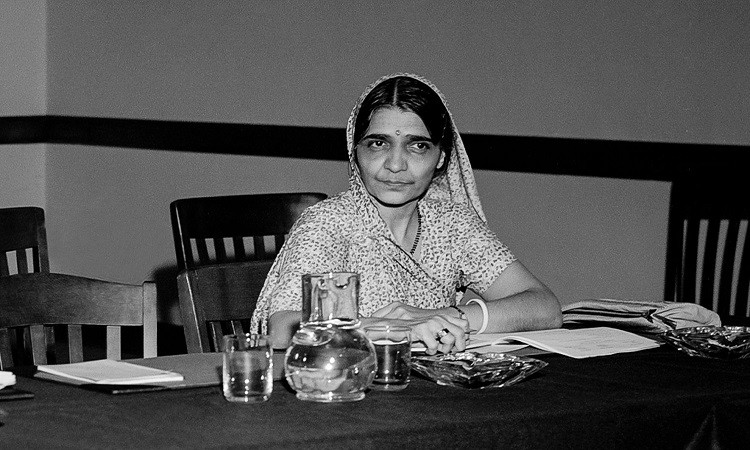
On July 3, India commemorates the birthday of Hansa Jivraj Mehta, a remarkable personality in the history of India. Born on July 3, Hansa Jivraj Mehta was a prominent reformist, social activist, educator, independence activist, feminist, and writer. Her tireless efforts and progressive ideologies have left an indelible mark on Indian society. This article delves into the life and accomplishments of Hansa Jivraj Mehta, celebrating her influential contributions to the country. She Died on 4 April 1995.
Early Life and Education: Hansa Jivraj Mehta was born on July 3, in 1897, in Bhavnagar, a princely state in Gujarat, India. She hailed from a progressive and educated family that encouraged her intellectual pursuits. Mehta's father, Jivraj Mehta, was a renowned physician and social reformer, which had a profound impact on her upbringing. Inspired by her father's work and teachings, Mehta developed a passion for social justice and women's empowerment from an early age.
Education played a pivotal role in shaping Mehta's ideologies. She completed her schooling at Alexandra High School in Bhavnagar and went on to pursue higher education at the University of Bombay (now known as the University of Mumbai). Mehta excelled academically and obtained a Master's degree in English literature, which equipped her with the necessary knowledge to articulate her thoughts and advocate for progressive causes.
Social Activism and Independence Movement: Hansa Jivraj Mehta's involvement in social activism began during the Indian independence movement. She actively participated in various campaigns and played a vital role in mobilizing women to join the struggle for freedom. Mehta believed that women's rights were an integral part of the larger fight for independence.
As an ardent advocate for women's empowerment, Mehta worked relentlessly to improve the status of women in Indian society. She fought against discriminatory practices such as child marriage, purdah system, and the unequal treatment of women in education and employment. Mehta co-founded the All India Women's Conference (AIWC) in 1927, which became a significant platform for addressing women's issues and advocating for their rights.
In 1946, Hansa Jivraj Mehta became the president of AIWC and continued to champion women's causes on both national and international fronts. She represented India in the United Nations Commission on the Status of Women and actively contributed to the framing of the Universal Declaration of Human Rights.
Recognizing the importance of education in transforming society, Mehta dedicated herself to educational reforms. She believed in providing equal opportunities to both men and women and fought for gender-neutral education. Mehta actively worked towards expanding access to education for women, particularly in rural areas.
Additionally, Mehta was a prolific writer and penned several articles and essays on women's issues, education, and social reform. Her writings offered insights into the challenges faced by women and proposed solutions for creating a more equitable society. Mehta's works continue to inspire generations of activists and intellectuals.
Hansa Jivraj Mehta's contributions to Indian society were recognized and celebrated during her lifetime. She received numerous accolades, including the Padma Bhushan, India's third-highest civilian award, in 1959. Her progressive ideas and unwavering commitment to social justice continue to shape the discourse on women's rights in India.
Mehta's influence extended beyond her lifetime. Her work inspired future generations of feminists and activists to continue the fight for gender equality and social justice. Her emphasis on education as a catalyst for change remains relevant today, as women in India continue to strive for equal opportunities and empowerment.
The legacy of Hansa Jivraj Mehta also extends to her contributions to policy-making and governance. She served as a member of the Constituent Assembly of India, which was responsible for drafting the Constitution of India. Mehta actively advocated for the inclusion of women's rights and gender equality provisions in the constitution, ensuring that the principles of social justice and gender equity were enshrined in the foundation of the nation.
Mehta's pioneering efforts in the field of women's rights and social reform have paved the way for significant advancements in Indian society. Her advocacy for women's education and empowerment has led to increased educational opportunities for women across the country. Today, women in India are pursuing higher education, entering diverse professions, and making their voices heard in various spheres of life, owing in part to the groundwork laid by Mehta and her contemporaries.
Furthermore, Mehta's relentless pursuit of gender equality and women's rights has had a lasting impact on the feminist movement in India. Her work has inspired and influenced subsequent generations of feminist thinkers, activists, and leaders. Her emphasis on the importance of women's agency and the recognition of their contributions to society has challenged traditional norms and encouraged a more inclusive and egalitarian mindset.
Mehta's unwavering dedication to women's rights, social justice, and education has left an indelible mark on Indian society. Her pioneering work continues to inspire and empower individuals to challenge societal norms and strive for a more equitable and inclusive world. As we commemorate her birthday, let us remember her legacy and continue to work towards realizing her vision of a just and gender-equal society.